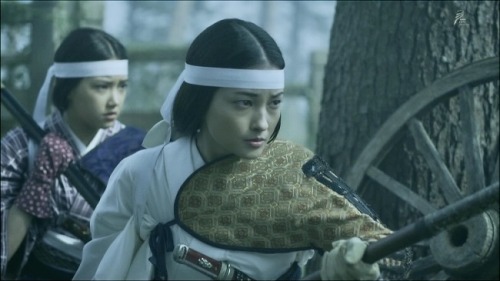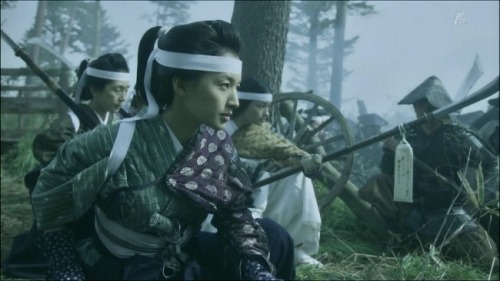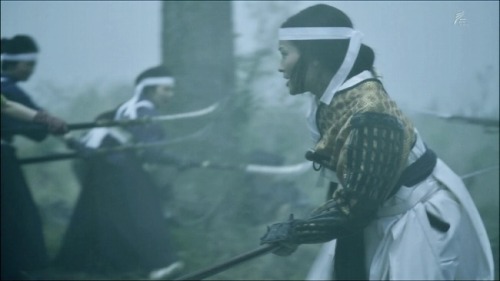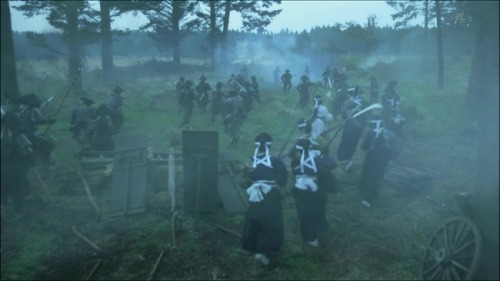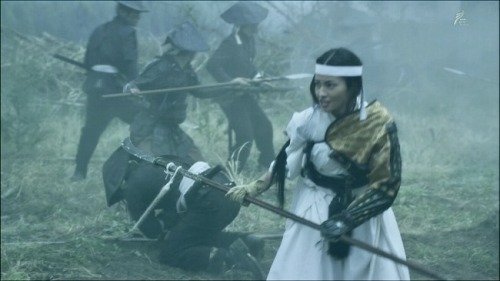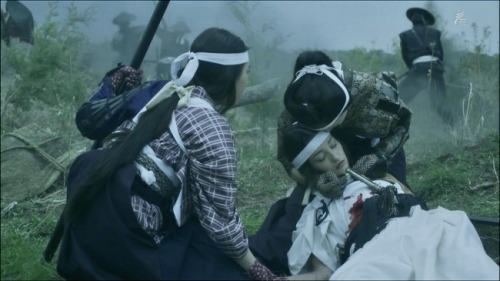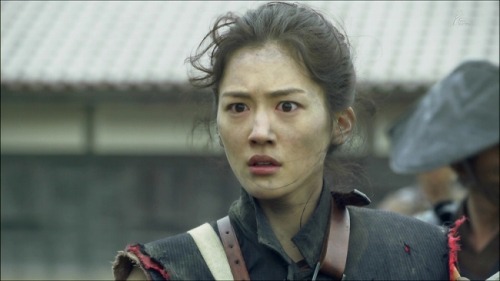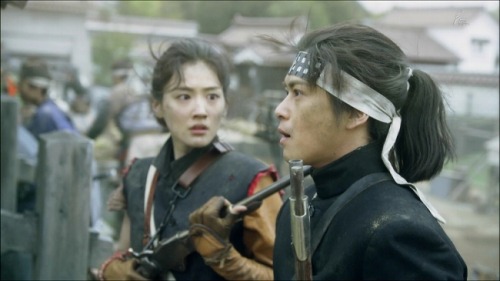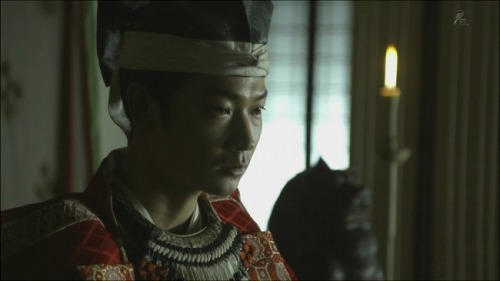#nakano takeko
Yae No Sakura (Ep 27) by Osakadai
Takeko Nakano (Meisa Kuroki) led the Onna Musha (non-military female warriors who defends the household when the husbands go out to war) against the Imperial forces outside of Tsuruga Castle which led to her demise, leaving Yae Niijima (Haruka Ayase) to lead the last line of defence at the castle itself, as Lord Matsudaira Katamori (Ayano Go) ponders the fate of his people.
Post link

What if I told you anime’s fierce female fighters had their inspiration in real life history? It’s not only the Strike Witches, but real ladies from the past, who have fought for Japan.
Military historian and Anime Boston convention panelist Haru Menna regaled his audience with tales of onna-bugeisha, female martial artists, from Japanese history. Here are five of the most famous, and the shocking exploits we still remember them for today.

Tomoe Gozen
Dubbed Japan’s “Beautiful Samurai,” Tomoe was born in 1184. The Heike Monogatari accounts her exploits, including the final battle she was ever involved with, in which she was the only survivor. Legend has it the only man she couldn’t kill, she married instead. In modern times, she is depicted yearly in the Jidai Matsuri parade in Kyoto.

Tsuruhime of Omishima
Born in 1526, Tsuruhime became the chief priest of the local shrine at age 16 after her father, the previous head priest, died. As a Shinto priest, she was the living embodiment of their local god. As a god, it was easy for her to become the local military leader as well, and she led the armed resistance against pirates trying to take over her hometown.

Miyagino and Shinobu
The woman warriors come as a pair! After a drunk samurai on the run, drunk, killed their father, a farmer, the younger sister (Shinobu) brought a word of the murder to her big sister Miyagino, working as a courtesan in Edo. For seven years they searched for the murderer and trained in hand-to-hand combat. After they found him, their local lord approved their request for a legal duel to the death, two on one. It is said that the murderer died… swiftly.

Nakano Takeko
In 1868, the imperial army put Nakano’s hometown, the city of Aizu, under siege. She formed a unit of about 30 teenage girls, known as the Joshigun, to defend the city. They faced off against 100 imperial soldiers with American Spencer rifles, armed only with naginata. When the imperial army saw their opponents were girls, they asked them to come forward so they could be taken prisoner… That’s when the dismembering began. Nakano sliced through six soldiers in a matter of minutes, and took seven bullets before she went down.
— Lauren, AB Staff Blogger



